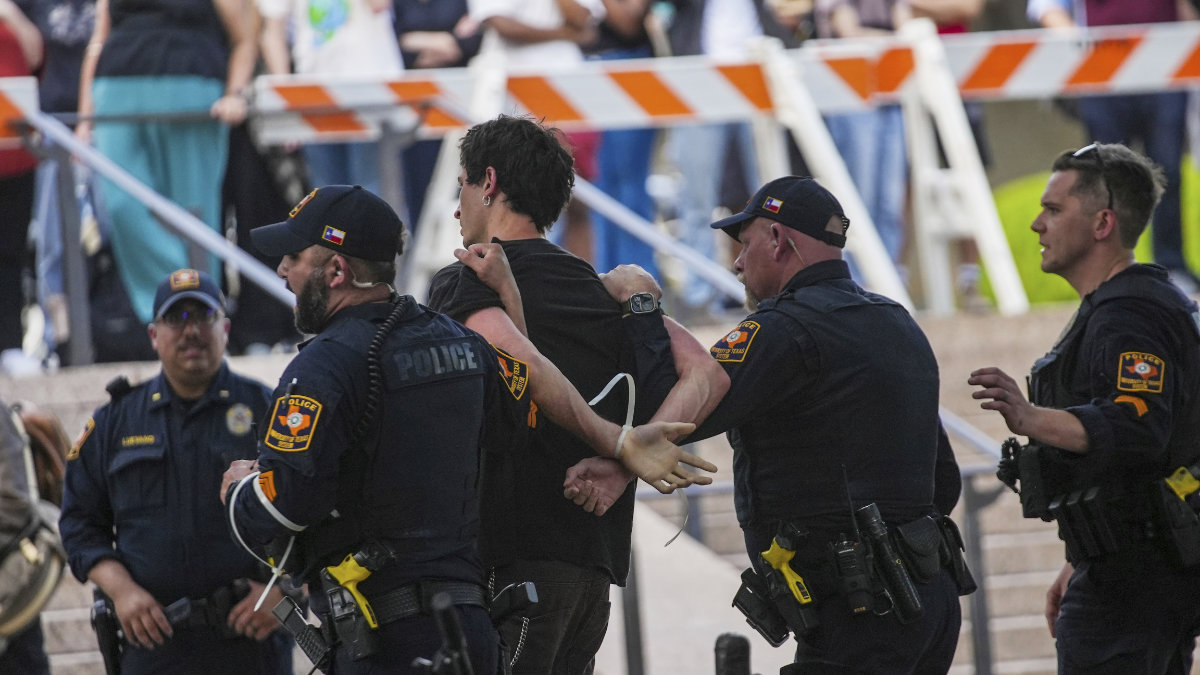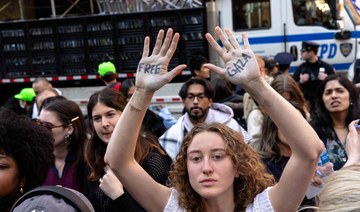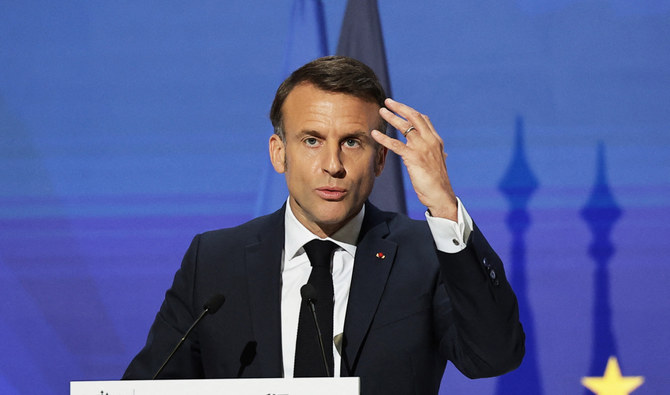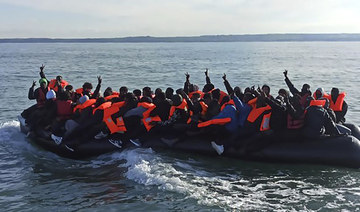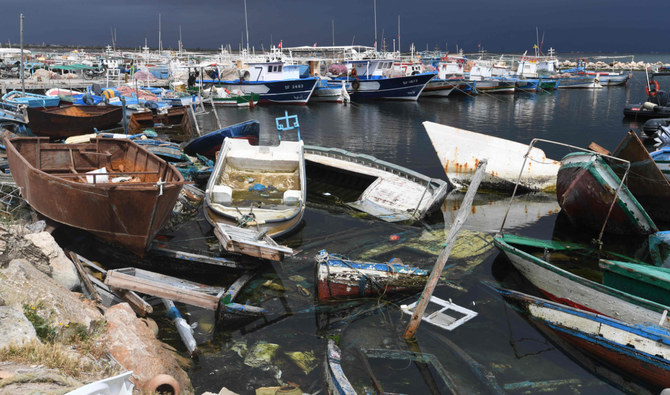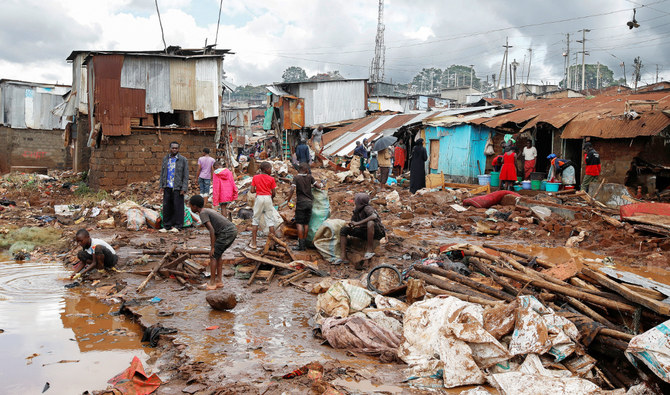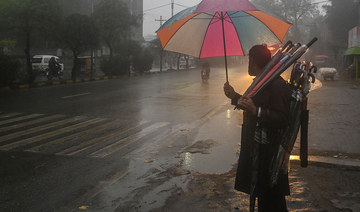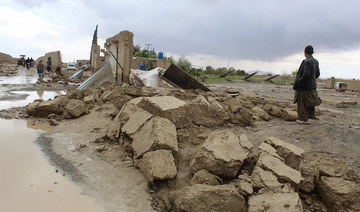PARIS: Ripping up France’s political map, French voters elected independent centrist Emmanuel Macron as the country’s youngest president Sunday, delivering a resounding victory to the unabashedly pro-European former investment banker and strengthening France’s place as a central pillar of the European Union.
Macron, who had never run for office before, celebrated with thousands of jubilant, flag-waving supporters outside the Louvre Museum in Paris on Sunday night. The European anthem “Ode to Joy” played as he strode out to address the swelling crowd.
“France has won!” he said. “Everyone said it was impossible. But they do not know France!“
Marine Le Pen, his far-right opponent in the runoff, quickly called the 39-year-old Macron to concede after voters rejected her “French-first” nationalism by a large margin. Le Pen’s performance dashed her hopes that the populist wave which swept Donald Trump into the White House and led Britain to vote to leave the EU would also carry her to France’s presidential Elysee Palace.
Macron told the Louvre crowd that the Le Pen vote was one of “anger, disarray.”
“I will do everything in the five years to come so there is no more reason to vote for the extremes,” he said.
Earlier, in a solemn televised victory speech, Macron vowed to heal the social divisions exposed by France’s acrimonious election campaign.
“I know the divisions in our nation that led some to extreme votes. I respect them,” he declared, unsmiling. “I know the anger, the anxiety, the doubts that a large number of you also expressed. It is my responsibility to hear them.”
The result wasn’t close: With four-fifths of votes counted, Macron had 64 percent support. Le Pen had 36 percent — far better than Jean-Marie Le Pen, her father and co-founder of their National Front party, achieved at the same stage in the 2002 presidential election.
Macron’s victory marked the third time in six months — following elections in Austria and the Netherlands — that European voters shot down far-right populists who wanted to restore borders across Europe. The election of a French president who champions European unity could also strengthen the EU’s hand in its complex divorce proceedings with Britain.
Parisians lined the streets outside Macron’s campaign headquarters to see his motorcade whisk him away to the Louvre party. His wife, Brigitte, joined him on stage after his address.
Macron said he understood that some voters backed him reluctantly, simply to keep out Le Pen and her National Front party, which has a long history of anti-Semitism and racism.
“I know that this is not a blank check,” he said. “I know about our disagreements. I will respect them.”
After the most closely watched and unpredictable French presidential campaign in recent memory, many voters rejected the runoff choices altogether — casting blank or spoiled ballots in record numbers Sunday.
Congratulatory messages poured in from abroad. Trump tweeted congratulations on what he called Macron’s “big win” and said he looked forward to working with the new French leader. Macron has said he wants continued intelligence-sharing with the United States and cooperation at the United Nations and hopes to persuade Trump not to pull the US out of a global accord fighting climate change.
Germany’s foreign minister, Sigmar Gabriel, laced his welcome for Macron with a warning to the French, saying: “If he fails, in five years Mrs. Le Pen will be president and the European project will go to the dogs.”
Macron becomes not only France’s youngest-ever president but also one of its most unlikely. Until now, modern France had been governed either by the Socialists or the conservatives, but both of their candidates were eliminated before the runoff.
“France has sent an incredible message to itself, to Europe and the world,” said Macron ally Francois Bayrou, tipped among his possible choices for prime minister.
Unknown to voters before his turbulent 2014-16 tenure as France’s pro-business economy minister, Macron took a giant gamble by quitting Socialist President Francois Hollande’s government to run as an independent. His startup political movement — optimistically named “En Marche! (In Motion)” — caught fire in just one year, harnessing voters’ hunger for new faces and new ideas.
“I’m so happy, it feels so good! I lived the election of Donald Trump in New York, and now finally, after Brexit, after Trump, populism has been beaten in France,” Macron supporter Pierre-Yves Colinet said at the Louvre party. “Today, I’m proud to be French.”
Despite her loss, Le Pen’s advancement to the presidential runoff for the first time marked a breakthrough for the 48-year-old and underscored a growing acceptance of her anti-immigration, France-first nationalism.
Le Pen immediately turned her focus to France’s upcoming legislative election in June, where Macron will need a working majority to govern effectively. Le Pen said her “historic and massive” score turned her party into “the leading opposition force against the new president’s plans.”
“I call on all patriots to join us,” Le Pen said. “France will need you more than ever in the months ahead.”
Her supporters at a National Front election night gathering in Paris put on a brave face.
“Now we enter combat,” said Didier Roxel, a National Front legislative candidate.
Le Pen said she got 11 million votes. If confirmed, that would be double her father’s score in the 2002 runoff.
Macron and Le Pen offered polar-opposite visions for France’s 47 million registered voters. Le Pen’s closed borders faced off against Macron’s open ones; his commitment to free trade ran against her proposals to protect the French from global economic competition and immigration. Her desire to free France from the EU and the shared euro currency contrasted with his argument that both are essential for the future of Europe’s third-largest economy.
Macron also got lucky in the campaign. One of his most dangerous opponents, conservative former Prime Minister Francois Fillon, was vilified after allegations that his family benefited from cushy taxpayer-funded jobs for years. Fillon is facing charges in the case.
On the left, the Socialist Party imploded, its candidate abandoned by voters who wanted to punish Hollande, France’s most unpopular president since World War II. Hollande himself decided not to run again.
Macron takes charge of a nation that, when Britain leaves the EU in 2019, will become the EU’s only member with nuclear weapons and a permanent seat on the UN Security Council.
But the vote also showed that France’s 67 million people are deeply divided, riven by anxieties about terrorism and chronic unemployment, worried about the cultural and economic impact of immigration and fearful of France’s ability to compete against giants like China and Google.
Macron has promised a France that would stand up to Russian President Vladimir Putin but that also would seek to work with Putin on fighting the Daesh group, whose extremists have claimed multiple attacks in France since 2015.
France has been in a state of emergency since then and 50,000 security forces were out to safeguarded Sunday’s vote.
___
Angela Charlton, Samuel Petrequin, Lori Hinnant, Thomas Adamson, Philippe Sotto, Raphael Satter, Elaine Ganley, David Keyton and Nicolas Vaux-Montagny contributed.











